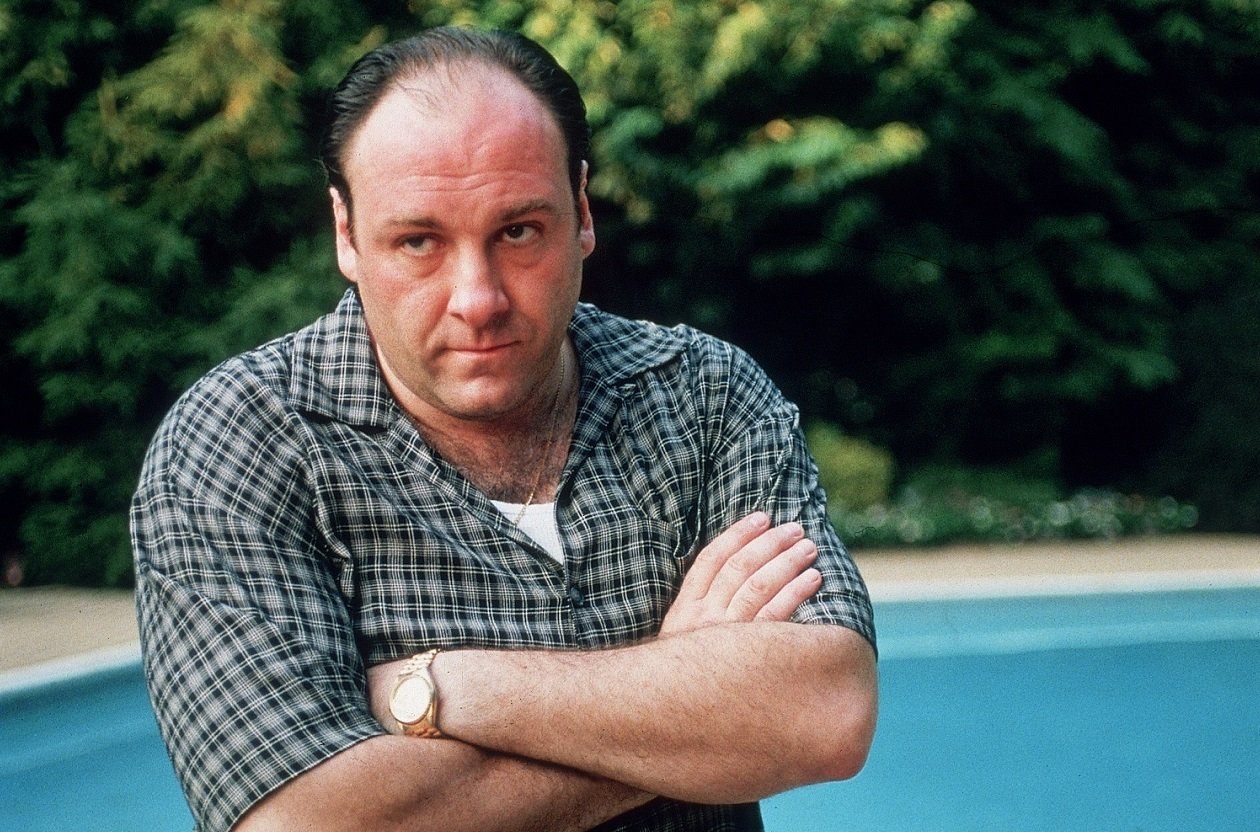‘The Sopranos’ Creepily Used CGI to Film Final Scene With a Dead Cast Member
Many people consider The Sopranos one of the best shows ever made — and especially one of the best HBO series ever made. In case you’ve been living under a rock for the past 20-plus years, The Sopranos was a wildly popular mob show that aired from 1999 to 2007. It wasn’t just the same old show about the Mafia, though; it was thrilling and groundbreaking in that it was brutally graphic and raw, but it was also oddly relatable.
‘The Sopranos’: More than a mob show

The Sopranos followed Tony Soprano, played by the late James Gandolfini, as he headed up two families in New Jersey: his nuclear family comprised of his wife and two children, and the Mafia.
Somehow, The Sopranos balanced its dark and incredibly real-seeming violence with typical suburban America experiences and even some lighthearted humor. Above all else, its characters were relatable and felt authentic (perhaps because several of the actors had real-life Mob ties).
Yes, Tony Soprano was a fearsome Mob boss, but he was also a doting family man who went to therapy to cope with panic attacks — a problem many of us can relate to. Those therapy sessions were central to The Sopranos‘ plot and according to Dr. Philip Ringstrom, Ph.D., Psy.D., they were “refreshingly credible.”
Tony Soprano’s therapy helped him with more than just managing his panic attacks. The show, unsurprisingly, frequently featured deaths and one early death was actually a member of the Soprano family. What was more than a little surprising, though, was how producers handled it.
Losing Livia
A frequent topic during Tony’s therapy sessions was his mother, Livia. The widowed Mrs. Soprano was manipulative, ornery, and downright unkind, even on her best days.
You could say that she and Tony had an interesting relationship, and it took an even more interesting turn when Livia put a hit out on him after he put her in a nursing home. It’s no wonder that RollingStone named Livia Soprano No. 3 on its list of “40 Greatest TV Villains of All Time.”
Sadly, the actress who played Livia, Nancy Marchand, died shortly after Season 2 of The Sopranos finished production. According to Playbill, Marchand died on June 18, 2001, the day before her 72nd birthday, after battling lung cancer for several years.
In the Season 2 finale, Tony visited Livia, despite the fact that he had all but disowned her. Ultimately, Tony demanded that his mother leave the country and he provided her with stolen first-class airline tickets. Livia heeded Tony’s advice and attempted to use the tickets, but was detained by security at the Newark Airport. Shortly afterward, Tony is arrested by the FBI.
According to The Sopranos wiki on Fandom, show producers planned to have Livia testify against Tony in court about the stolen tickets in Season 3. However, Marchand died before Season 3 filming began, so that storyline couldn’t be used.
They did…what?
Producers obviously had to acknowledge Marchand’s death, but the way they went about it left many — if not most — fans scratching their heads. As ScreenRant explained: “It would have made sense to establish that Livia had passed away in her sleep, during the gap between Season 2 and 3. Instead, they CGI’d her head onto the body of another actress, for an unusual scene where she reacts to Tony’s statements in a nonsensical way.”
For anyone unfamiliar with the term, CGI stands for computer-generated imagery, and it’s a common but polarizing special effect used primarily in action movies. In the case of Livia Soprano, producers brought her back for just a few brief scenes in the Season 3 premiere by superimposing her head onto another actor’s body and using audio from previously-filmed outtakes.
Later in the episode, it is revealed that Livia died in her sleep, which, according to ScreenRant, “is what they should have said to begin with.”


